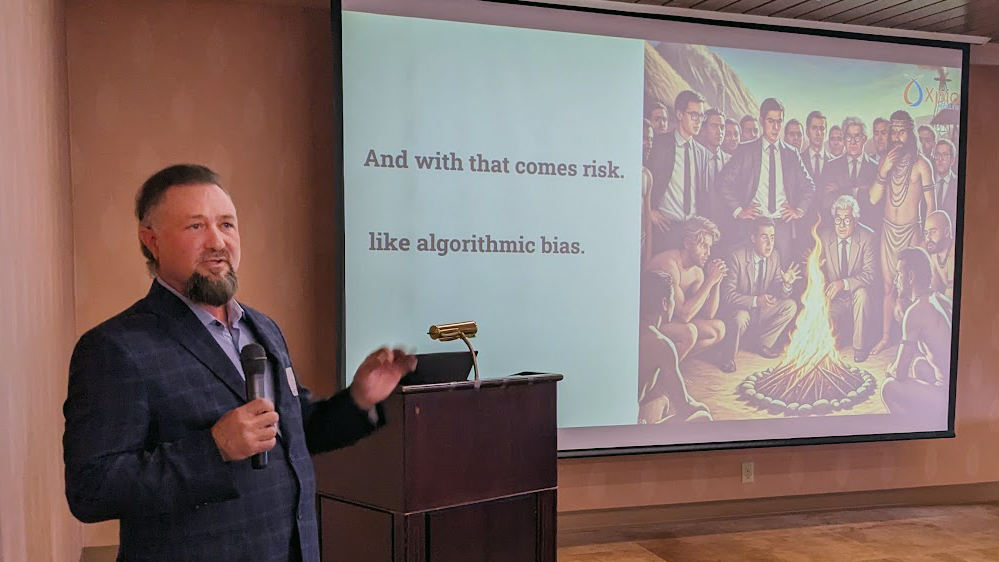
Artificial intelligence is a transformative force that’s already reshaping how we deliver care in behavioral health. The challenge? Its potential is evolving faster than most organizations can keep pace.
Xpio Health CEO Thaddeus Dickson delivered a compelling presentation on implementing AI in behavioral health organizations at September’s Alaska Behavioral Health Association (ABHA) conference in Anchorage. With more than 50 engaged attendees from 60 diverse organizations, the session ignited conversations about AI’s transformative potential in our field.
Dickson’s presentation explored the technical, organizational, and human dimensions of AI integration. He emphasized the rapid evolution of AI technology and its growing impact on behavioral health practices.
The session prompted thought-provoking questions about preserving the human element in an increasingly AI-driven healthcare landscape. Attendees wrestled with strategies to harness AI’s capabilities while maintaining the personal engagement essential to quality care. Check out our Deep Dive into the presentation:
“AI is a bit mysterious even for those who have some technical grasp,” Dickson noted. “Its architecture and complexity are moving faster than we ourselves are really able to comprehend it.” This observation set the stage for an honest discussion about AI’s role in reshaping behavioral health services.
Key points from the presentation included:
- The changing nature of expertise in the AI era
- AI’s influence on creativity and problem-solving in healthcare
- Ethical considerations surrounding AI-assisted decision-making
- The future synergy between AI systems and human practitioners in therapy
Karl Soderstrom, founder and CEO of True North Recovery, shared his takeaways: “Being able to transition ideas into action planning was pretty impactful. I left wanting to take next steps and learn more.”
Dickson highlighted the transformative potential of AI in behavioral health: “We’re now in an age in which you can delegate your intelligence to a machine. How does that really affect the future of business, healthcare, and therapy?” This question encapsulates the central challenge facing behavioral health organizations as they navigate AI adoption.
The presentation also explored how AI could reduce administrative burdens, allowing healthcare providers to focus more on building client relationships and delivering quality care. As Soderstrom noted, “If we can use anything to reduce the administrative burden on our workforce, it will create an atmosphere where we can say yes to clients more often and quicker.”
As leaders in behavioral health technology, Xpio Health remains committed to guiding organizations through this complex landscape, and understands the delicate balance between leveraging AI for efficiency and maintaining the human-centric approach that is fundamental to effective behavioral health services.
The presentation underscored Xpio Health’s position at the forefront of technological advancement in behavioral health, demonstrating our expertise in helping organizations harness AI’s potential while addressing its challenges.
Is your behavioral health organization ready to explore how AI can streamline operations and improve patient care? Contact Xpio Health today for a consultation and let us help you navigate the exciting future of AI in behavioral health.
#XpioHealth #BehavioralHealth #PeopleFirst #AIinHealthcare #HealthTech #MentalHealthInnovation #DigitalTransformation




